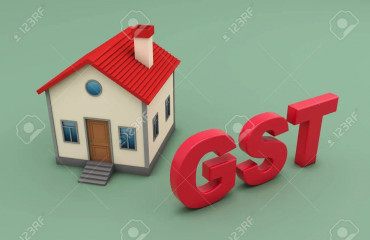
The inquiry posed by Shri Shyam Singh Yadav in Lok Sabha Starred Question No. 212 casts a spotlight on a pivotal aspect of tax policy— the potential subsuming of fuels like petrol, diesel, natural gas, and Aviation Turbine Fuel (ATF) under the Goods and Services Tax (GST). The question, scheduled for response on December 18, 2023, prompts the Ministry of Finance to elucidate the government’s stance on this matter. Minister of Finance, Shrimati Nirmala Sitharaman’s response, encapsulated in a statement, outlines the constitutional and legislative framework governing the inclusion of these fuels in the GST ambit. Notably, the absence of recommendations from the GST Council thus far underscores the complexity of the decision-making process, with considerations extending beyond fiscal implications to encompass broader economic and policy dimensions.
The inquiry posed by Shri Shyam Singh Yadav in Lok Sabha Starred Question No. 212 casts a spotlight on a pivotal aspect of tax policy— the potential subsuming of fuels like petrol, diesel, natural gas, and Aviation Turbine Fuel (ATF) under the Goods and Services Tax (GST). The question, scheduled for response on December 18, 2023, prompts the Ministry of Finance to elucidate the government's stance on this matter. Minister of Finance, Shrimati Nirmala Sitharaman's response, encapsulated in a statement, outlines the constitutional and legislative framework governing the inclusion of these fuels in the GST ambit. Notably, the absence of recommendations from the GST Council thus far underscores the complexity of the decision-making process, with considerations extending beyond fiscal implications to encompass broader economic and policy dimensions.
The statement emphasizes the constitutional provisions, such as Article 279 A (5), and statutory requirements, like section 9(2) of the CGST Act, that dictate the inclusion of specific products under GST, highlighting the role of the GST Council in making such recommendations. The Minister's clarification on the lack of GST Council recommendations unveils the intricate nature of policy decisions in the realm of taxation, where considerations of states' interests and economic impact intertwine. Furthermore, the response points out the challenge in estimating revenue implications, given the absence of a recommended GST rate for these fuels, providing a glimpse into the nuanced dynamics shaping the ongoing discourse on GST reforms in the country.
GOVERNMENT OF INDIA
MINISTRY OF FINANCE
DEPARTMENT OF REVENUE
LOK SABHA
STARRED QUESTION NO. *212
TO BE ANSWERED ON MONDAY, DECEMBER 18, 2023/AGRAHAYANA 27, 1945 (SAKA)
SUBSUMING FUELS UNDER GST
*212. SHRI SHYAM SINGH YADAV:
Will the Minister of FINANCE be pleased to state:
(a) whether the Government intends to subsume fuels like petrol, diesel, natural gas and Aviation Turbine Fuel (ATF) under GST;
(b) if so, the details thereof and if not, the reasons therefor;
(c) whether the Government has made any estimate as to how much revenue would be generated by subsuming or the amount of revenue forgone by not subsuming fuels mentioned above under GST; and
(d) if so, the details thereof?
ANSWER
MINISTER OF FINANCE
SHRIMATI NIRMALA SITHARAMAN
(a), (b), (c) and (d): A statement is placed on the Table of the House.
STATEMENT REFERRED TO IN REPLY TO THE LOK SABHA STARRED QUESTION NO. 212 RAISED BY SHRI SHYAM SINGH YADAV FOR 18th DECEMBER, 2023 ON SUBSUMING FUELS UNDER GST
(a) and (b): Article 279 A (5) of the Constitution prescribes that the Goods and Service Tax Council shall recommend the date on which the goods and services tax be levied on petroleum crude, high speed diesel, motor spirit (commonly known as petrol), natural gas and aviation turbine fuel (ATF). Also, as per the section 9(2) of the CGST Act, inclusion of these products in GST will require recommendation of the GST Council. So far, the GST Council, in which the states are also represented, has not made any recommendation for inclusion of these goods under GST.
(c) and (d): Revenue Generation will depend on the GST rate. At present, these products are not covered in GST and no recommendation has been made so far by the GST Council. Therefore, it is not possible to assess the revenue generated or revenue foregone by not subsuming these fuels in GST.
